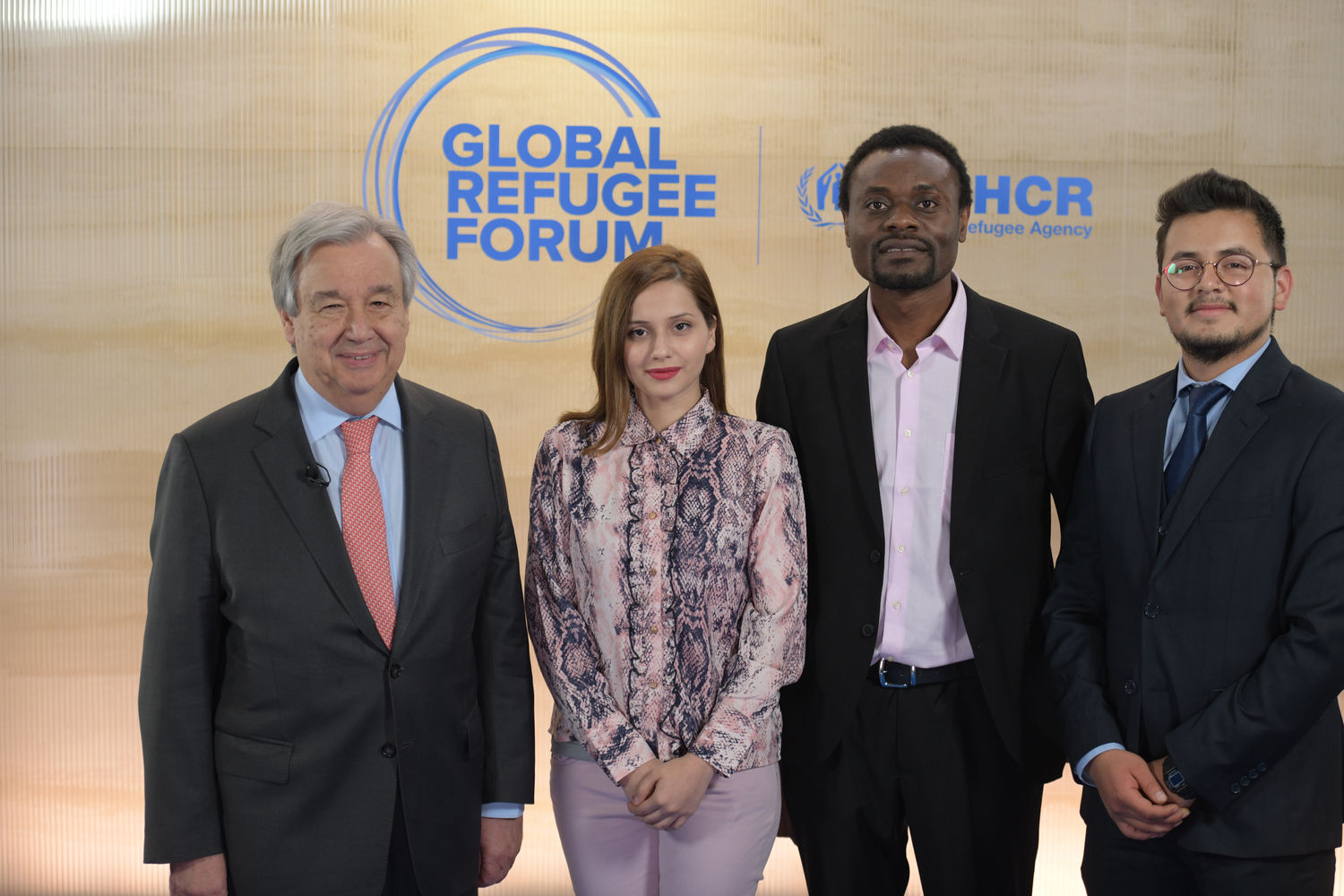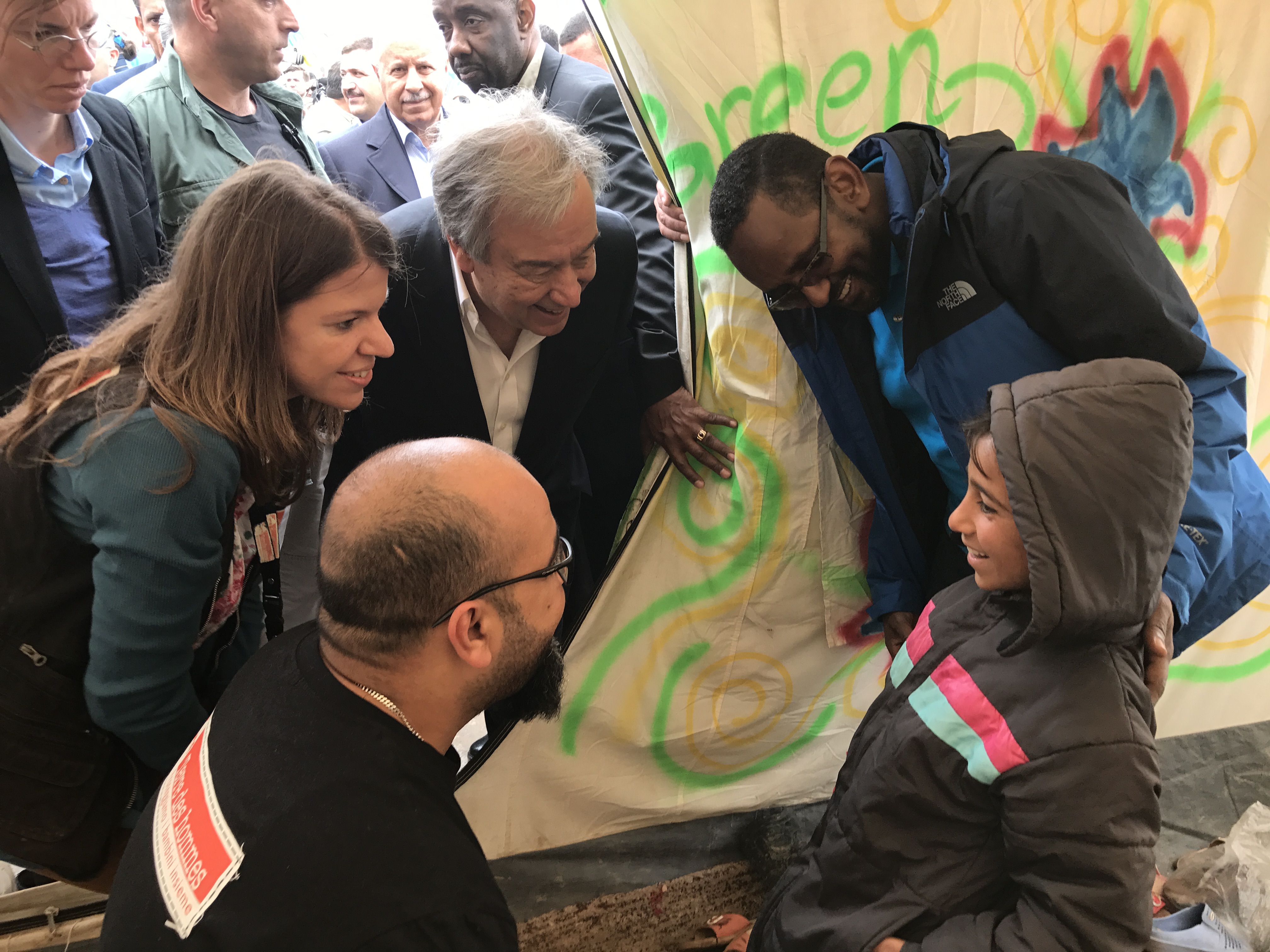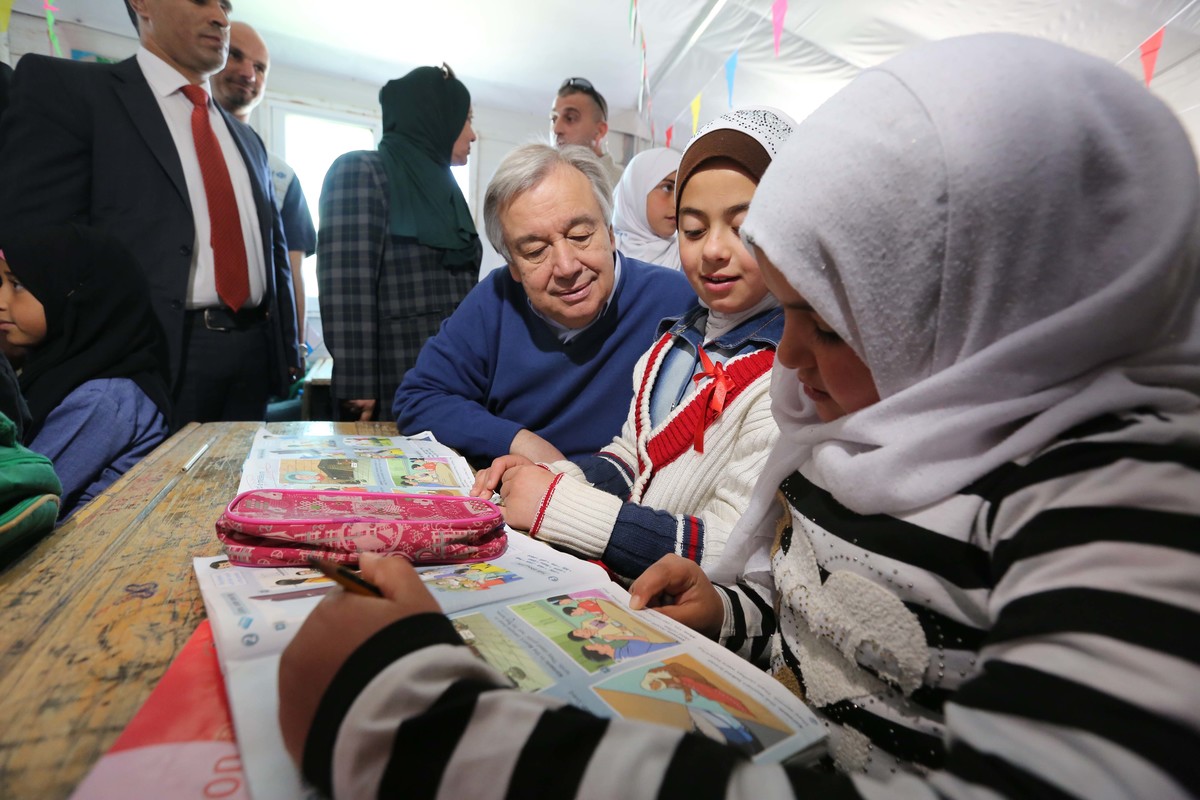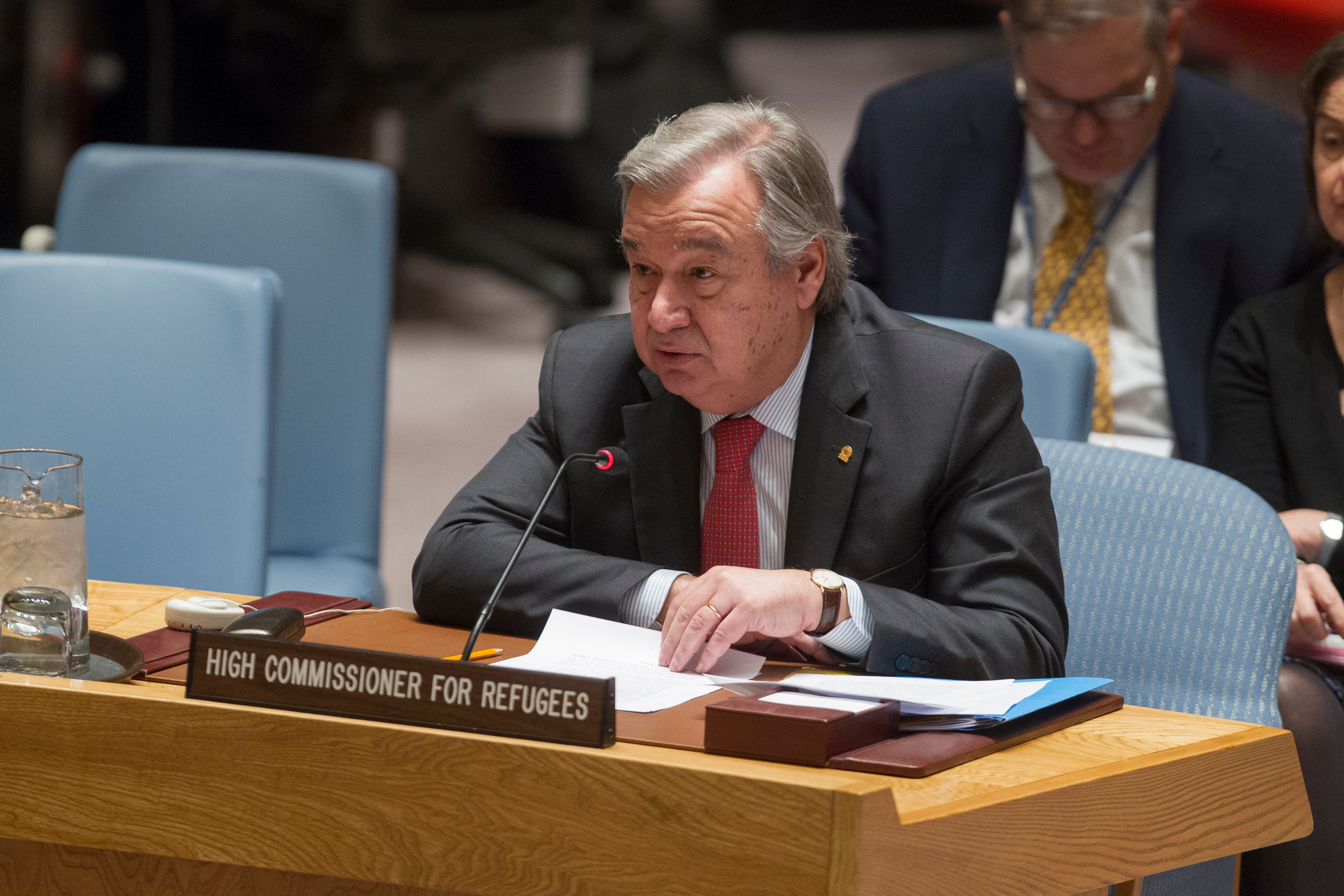High Commissioner meets displaced, local officials in West Darfur
High Commissioner meets displaced, local officials in West Darfur

EL GENEINA, Sudan, April 24 (UNHCR) - UN High Commissioner for Refugees António Guterres on Tuesday arrived in Sudan's West Darfur region, where he urged local authorities to improve security and assured those displaced by conflict that they would not be forgotten. He also announced that the Sudanese government had agreed to an expansion of UNHCR's work in West Darfur.
Guterres, on the second day of a four-day mission to Sudan, met with internally displaced people (IDPs) in Krinding Camp, near the West Darfur capital of El Geneina. Earlier, Guterres met with local Sudanese in El Geneina and discussed UNHCR's future role in the region.
"We have agreed with the Sudanese government to upgrade our presence in West Darfur in cooperation with the United Nations and the government," he explained.
The High Commissioner also expressed appreciation to authorities for accepting some 25,000 Chadian refugees who have sought refuge in West Darfur following insecurity in neighbouring eastern Chad. More than 4,800 of them are in Um Shalaya camp, while the others are in makeshift settlements near the border.
Some 2 million people have been displaced by the violence in Darfur. UNHCR is responsible for coordinating protection for about 700,000 of them in West Darfur, but does not have access to many of them because of the insecure environment.
"We are counting on your commitment to improve the security situation in the IDP camps and their surroundings," Guterres told local authorities during a meeting in El Geneina. "Our agenda is the people we care for. And I am sure that the people we care for are the people you care for," he added.
Improved security was essential if humanitarians were to do their work, the High Commissioner said. Many aid agencies are only able to move by helicopter in much of West Darfur because roads are too dangerous and prone to ambush.
Following his discussions with local authorities, Guterres met with internally displaced persons in Krinding Camp on the outskirts of El Geneina. The camp was established in 2004 at the height of the displacement and today has some 31,500 residents.
Accompanied by African Union officials and UN civilian police, he first met with a group of some 20 leaders representing the camp population.
"Our main concern is security" explained one of the leaders. "We cannot move. People get shot. Many women have been raped.... The security situation is terrible and there is no one to complain to."
Another asked the High Commissioner who will protect them and pleaded for help from UNHCR.
"There is regular shooting in the camp," he said. "We don't know who's doing it and we can't sleep because we're afraid we will be killed."
"If there is no peace, there is no solution," Guterres told the leaders. "The whole world needs to work together to bring peace to the region. A political solution is the most important and first step."
He noted that the violence in Darfur came from several groups, including bandits, and it was often difficult to distinguish who was responsible.
"I am very sorry that you are in a camp," he told the leaders, assuring them that they have not been forgotten. "We understand how much you have suffered. I know that nothing will replace life in your villages."
Guterres also met with a group of displaced women who expressed fears about security and concerns over school fees.
"Our children have not gone to school for the past three months because we can't afford to pay fees for the teachers," said one woman. She said it cost the equivalent of $2.50 per month to send a child to school. Guterres promised to look into ways of getting their children back into school as soon as possible. The women also asked for more income generation activities to support their families. UNHCR and its partners are running 34 women's centres in West Darfur - including in Krinding - where women can learn new skills.
The High Commissioner also visited a children's centre, where boys and girls showed him various drawings, including war scenes depicting armed men shooting civilians.
On Wednesday, Guterres was scheduled to meet with Chadian refugees who have fled to Darfur over the past 18 months to escape ongoing violence in eastern Chad. On Thursday, he will go to Kassala State in eastern Sudan, where he will visit refugee camps for Eritreans and Ethiopians. The eastern camps were established nearly 40 years ago - in 1968. East Sudan hosts a refugee population of approximately 136,000 refugees.
By Annette Rehrl in El Geneina, Sudan








